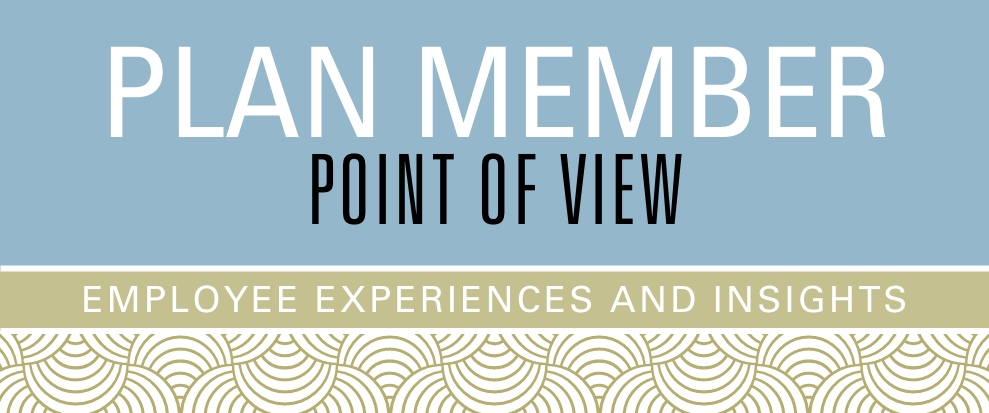

Lisa
Lisa Vautour had struggled with obesity for many years and tried countless approaches to losing weight. Six years ago, thanks to a supportive employer, she was able to get the treatment she needed for what she unequivocally describes as a chronic disease.



“ It was so much easier to be successful once I didn’t have to stress about having time off or coverage for the medications I needed.”
Tell me about your journey with obesity.
In my late teenage years, I required medications to treat a health condition that made me start to gain weight. When I was ready to start a family, I had a few pregnancies that ended in miscarriages. With pregnancy, my hunger increased, and I felt I needed to eat everything but the kitchen sink, and then after miscarrying I was depressed, and the pounds added up. From 18 to 25, I went from about 120 pounds to close to 170. Then I got pregnant at 25 and successfully carried my son to term. My pregnancy weight was 225 and I never recovered. I went all the way up to 250.
What were some of the challenges you faced as a result of obesity?
It affected my physical health in several ways. I had one foot I could barely walk on—I limped all the time, which made being active very challenging. My blood pressure was starting to be on the high side. My back bothered me all the time when sitting, standing and trying to sleep. I was in excruciating pain. It also affected my mental health. I was depressed. I was angry. I felt a lot of resentment. I missed out on a lot. I had to sit on the sidelines and watch my son and my husband do activities and seize opportunities to enjoy their life to the fullest, but because I was too big, I was physically unable to be as active as I wanted to be.
Were there effects on your performance at work?
Absolutely, because if you’re not feeling well, you’re not going to perform well. If you’re working your full day in pain, you can’t concentrate. Plus, you’re going to take more time off if you’re managing overweight or obesity—for your back, your legs, high blood pressure, diabetes. It all means more appointments, more sickness, and all of that affects performance. I took time off for exhaustion and depression, too. Now, with my weight under control, I rarely miss work.
What steps did you take to tackle obesity?
From diet pills to fad diets, I tried it all. Doctors advised me to eat less and move more and this was not helpful at all. Then, in my late 30s, I started being really concerned about my weight. I was getting older and I wanted to be healthy and live to see my son get married and my grandchildren grow up. My son was nearing graduation and, in my mind, I didn’t want to go to his graduation at 250 pounds and have him be ashamed of me. He wouldn’t have been, but in my mind I thought he would. That’s when I talked to my doctor about bariatric surgery. As I learned about it—and I researched everything from morning to night—I knew this was for me and it was going to work. I was going to make it work.
How did your employer support you?
I’ve been really lucky through the years. I’ve had some great employers with great benefits. My employer at the time provided paid short-term leave while I was recovering from the surgery, and when that was done I was able to go on Employment Insurance. I was astounded to learn that some of the medications I needed to take were not covered by most benefits plans. I couldn’t believe it. Obesity is a chronic disease—no ifs, ands or buts about it—so why would one chronic disease be singled out and its treatments not be covered by a benefits plan? If somebody had diabetes would you refuse them insulin, or another treatment that would help them manage their disease?
How did your employer’s support make you feel?
It made me feel validated and that getting treatment was important and was what I needed to do. Also, not having that extra stress of not having time off or not having coverage for the medications that I needed made it so much easier to be successful. Employers need to look at attendance and performance. Look at days off. Look at illnesses. Those who don’t help people with obesity get treatment are limiting their employees’ performance. If somebody can’t get what they need to be well, how can you expect them to perform?
How has reducing your weight improved your performance at work?
They call me the Energizer Bunny at work now, and I never had that energy before. I’m one of the top producers in my unit and I organize all our extra-curricular activities—fundraisers, holiday parties, Hallowe’en days, everything. Before, I had no energy, no motivation, no drive. I would never in a million years have been able to do what I’m doing now.
How do you stay motivated to maintain your weight?
It’s been six years since the surgery, and it hasn’t been easy. It’s an every day thing. I had to change all my habits. One of the things that really stuck with me from the research I did is that the surgery is a tool, not a cure—and if you don’t use that tool properly, it’s not going to work for you. But I want to be healthy. I want to live to be old. And I want to be able to do with my grandchildren what I couldn’t do with my son.
Obesity is a progressive, relapsing, chronic disease that affects a large portion of the population globally.1 For more information on evidence-based approaches for obesity prevention, treatment and policy to improve the lives of Canadians affected by obesity, please visit www.obesitycanada.ca.
1. Ralston J, Brinsden, H., Buse, K., et al. Time for a new obesity narrative. The Lancet. 2018;392(10156):1384-1386.

